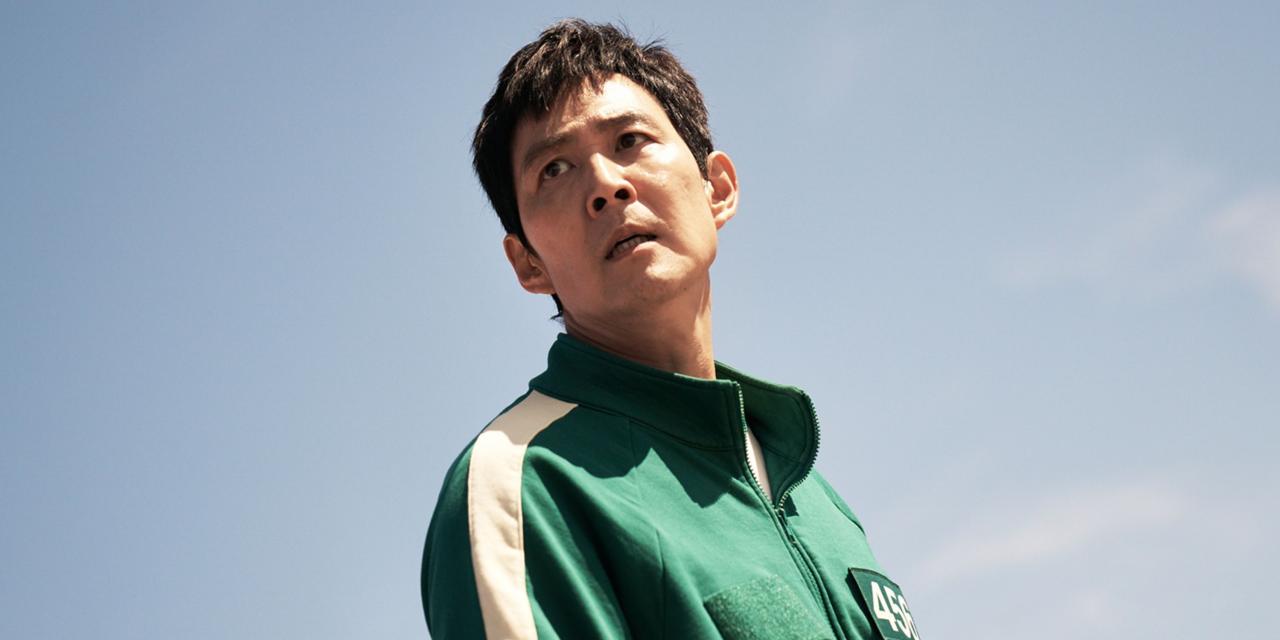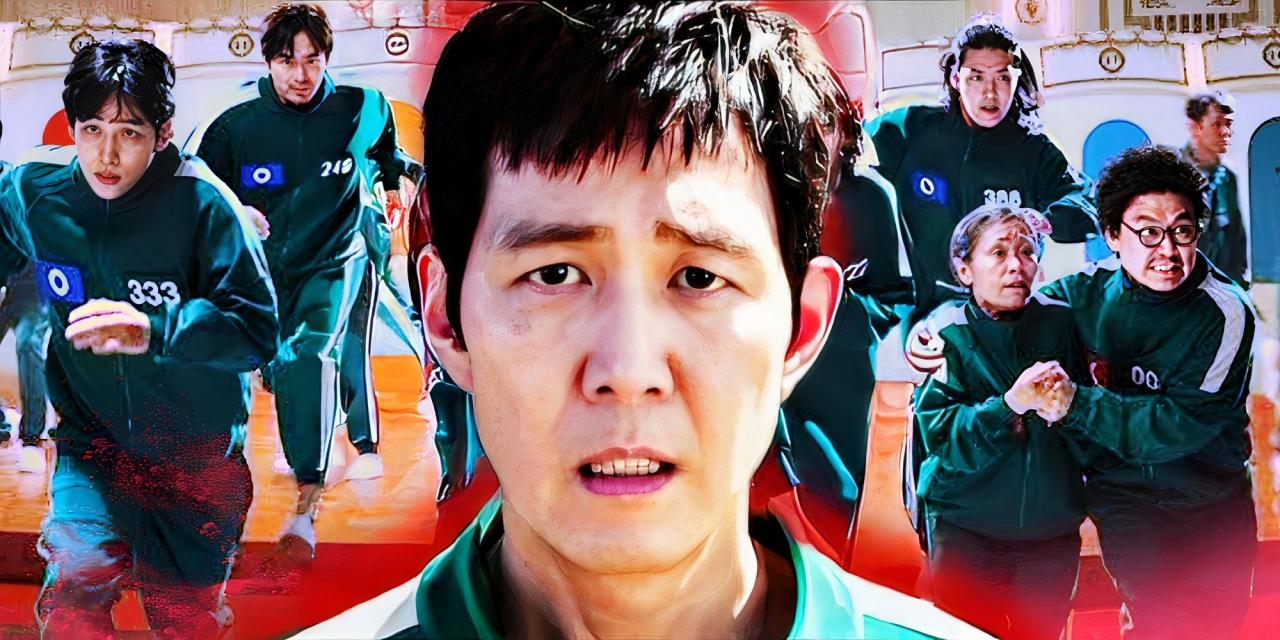Squid Game Histoire Vraie? The hit Netflix show wasn’t just a thrilling spectacle; it sparked intense debate about the realities of extreme debt, societal inequality, and the brutal systems that can push people to the brink. This exploration delves into the real-world parallels that inspired the show, examining the socio-economic pressures driving desperate individuals into life-or-death situations. We’ll dissect the games themselves, their symbolism, and the psychological impact on the players, while also exploring the show’s powerful social commentary.
We’ll look at examples of real-life debt crises in South Korea and beyond, comparing them to the show’s depiction of financial hardship and desperation. We’ll analyze how exploitative labor practices and wealth disparity contribute to such extreme scenarios, and consider the ethical dilemmas faced by the characters in the show. Ultimately, we’ll examine how “Squid Game” serves as a potent reflection of global concerns about inequality and social injustice.
The Inspiration Behind “Squid Game”: Real-World Parallels

The dystopian world of “Squid Game” isn’t entirely fictional. Its brutal depiction of desperation and inequality finds unsettling echoes in real-world struggles, particularly concerning South Korea’s socio-economic landscape and global debt crises.
Real-World Debt Crises and Their Impact
South Korea, like many nations, has experienced periods of significant economic hardship leading to widespread debt. The 1997 Asian financial crisis, for instance, resulted in mass unemployment and financial ruin for countless families. Globally, similar crises have devastated economies and left individuals struggling to meet basic needs. The show’s portrayal of characters driven to participate due to crippling debt reflects these harsh realities.
Social and Economic Inequalities in “Squid Game”
The stark contrast between the ultra-wealthy VIPs and the deeply indebted players in “Squid Game” mirrors real-world inequalities. The show vividly portrays a system where the wealthy thrive while the poor are trapped in a cycle of poverty, with limited opportunities for upward mobility. This parallels societal structures globally where wealth disparity continues to widen.
Psychological Pressures and Desperation
The psychological toll of extreme financial hardship is powerfully depicted. Characters are pushed to the brink of desperation, resorting to drastic measures to survive. Documented cases of individuals resorting to crime or even suicide due to overwhelming debt provide chilling parallels to the show’s narrative.
Comparative Table: Game Scenarios vs. Real-Life Survival Situations
| Game Scenario | Real-World Parallel | Severity | Impact |
|---|---|---|---|
| Red Light, Green Light | Precarious employment situations where one mistake can lead to job loss | High | Financial ruin, loss of housing |
| Honeycomb | High-stakes challenges faced by low-income individuals, such as navigating complex bureaucratic systems | Medium | Missed opportunities, increased stress |
| Tug-of-War | Competition for limited resources in a struggling economy | High | Loss of life, increased social stratification |
| Marbles | Exploitative relationships, trust betrayed for personal gain | High | Betrayal, emotional trauma |
Capitalism, Exploitation, and the Games: A Critical Examination
The games in “Squid Game” are not merely violent spectacles; they serve as potent metaphors for capitalist exploitation and systemic inequalities.
Exploitative Labor Practices and Desperation, Squid game histoire vraie
The desperation driving the players to participate directly reflects the exploitative labor practices prevalent in many parts of the world. Workers facing low wages, dangerous conditions, and limited job security are often forced into desperate situations, mirroring the characters’ plight. The desperation to survive incentivizes them to take on these extreme risks.
Wealth Disparity and Systemic Inequality
The vast wealth disparity between the VIPs and the players highlights the role of systemic inequality in creating such extreme situations. The system itself is rigged, favoring the wealthy and leaving the poor with few options for advancement. This creates an environment where desperate measures, like participating in the deadly games, become a seemingly viable option for survival.
Capitalist Structures Symbolized in the Games
- The hierarchical structure of the games mirrors corporate hierarchies, where those at the top profit from the exploitation of those below.
- The elimination of players represents the ruthless competition inherent in capitalism, where only the “fittest” survive.
- The games’ emphasis on individual survival ignores systemic issues, reflecting the individualistic nature of many capitalist societies.
- The lack of regulation and oversight mirrors the lack of worker protections in some industries.
Hypothetical Scenario: A Similar Game in a Different Context
Imagine a similar game emerging in a post-apocalyptic society ravaged by climate change. Resources are scarce, and desperate survivors might compete in deadly challenges for access to food, water, or shelter. This highlights how the desperation depicted in “Squid Game” could manifest in different socio-economic contexts.
The Games Themselves: Origins and Interpretations: Squid Game Histoire Vraie
The games in “Squid Game” are twisted versions of traditional Korean children’s games, adding layers of symbolism and escalating brutality.
Traditional Korean Children’s Games and Their Distortion
Games like “Red Light, Green Light,” “Honeycomb,” and “Tug-of-War” are adapted and distorted, transforming innocent childhood pastimes into deadly competitions. This juxtaposition highlights the stark contrast between carefree childhood and the brutal realities faced by the players.
Symbolism of Each Game
Each game carries symbolic weight. “Red Light, Green Light” represents the rigid control and obedience demanded by the system. “Honeycomb” symbolizes the fragility and precariousness of life, and the “Tug-of-War” signifies the struggle for survival and the ruthless competition for resources.
Escalating Brutality and Psychological Impact
The games progressively increase in brutality, reflecting the escalating desperation of the players. The psychological impact is devastating, pushing players to their physical and mental limits. The escalating violence and desperation mirror the increasing pressure in real-world situations where survival becomes a constant struggle.
Progression of Games: Violence and Desperation
The progression of games can be visualized as an upward-sloping line, with each game representing a higher level of violence and desperation. The initial games are relatively simple, but the later games become increasingly complex and deadly, culminating in a final, brutal showdown.
The Survivor’s Guilt and Moral Ambiguity: A Psychological Analysis

The show delves into the complex psychological impact of survival, exploring themes of guilt, moral compromise, and the limits of human nature under extreme pressure.
Ethical Dilemmas and Moral Compromises
Players are forced to make impossible choices, often involving betraying their fellow contestants for a chance at survival. These moral compromises highlight the difficult ethical dilemmas faced when survival is at stake. The show doesn’t offer easy answers, forcing viewers to confront these moral complexities.
Psychological Responses to Trauma and Guilt
The survivors grapple with intense guilt and trauma. The psychological toll of witnessing and participating in such violence is significant. Post-traumatic stress disorder (PTSD) and survivor’s guilt are explored, demonstrating the long-lasting impact of extreme experiences.
Human Nature, Morality, and Choices Under Pressure
“Squid Game” explores the complexities of human nature, revealing both the capacity for cruelty and the resilience of the human spirit. The choices made under extreme pressure expose the flaws and strengths of the characters, raising questions about morality and the boundaries of survival.
Character Profile: Gi-hun’s Internal Struggles
Gi-hun, the protagonist, embodies the show’s exploration of moral ambiguity. Initially driven by desperation, he gradually confronts his own moral failings. His internal struggles and eventual decision to fight against the system represent a complex evolution of character and morality.
Social Commentary and Cultural Relevance
“Squid Game” transcends its genre, serving as a powerful social commentary on South Korean society and global concerns about inequality and injustice.
Commentary on South Korean Society

The show offers a critical look at South Korean society, highlighting issues such as economic inequality, social stratification, and the pressures of a highly competitive society. It challenges viewers to confront the realities of a system that leaves many behind.
Public Reactions and Discussions
The show’s global popularity sparked widespread discussions about its themes. Viewers engaged in debates about inequality, social justice, and the ethical implications of the games. The show’s impact on public discourse demonstrates its effectiveness in raising awareness of important social issues.
So, you’re looking into whether “Squid Game histoire vraie” is based on a true story? While the show itself is fictional, its themes of desperation and inequality resonate with real-world struggles. Think about the pressure some people face, leading to drastic measures; it’s a bit like the aftermath of a tragedy, like the fullerton plane crash , where lives were lost and families faced unimaginable hardship.
Ultimately, “Squid Game histoire vraie” uses exaggerated scenarios to highlight the harsh realities that unfortunately exist in our world.
Global Concerns About Inequality and Injustice
“Squid Game” resonates globally because its themes of inequality and social injustice are universal. The show’s depiction of desperation and exploitation reflects similar struggles faced by marginalized communities worldwide.
Effectiveness in Raising Awareness
The show’s compelling narrative and shocking visuals effectively raise awareness of critical social issues. By presenting these issues in a dramatic and engaging format, “Squid Game” transcends the limitations of traditional documentaries or news reports, making these complex issues accessible to a broader audience and prompting important conversations.
Closing Notes
Ultimately, “Squid Game Histoire Vraie” isn’t just about a fictional show; it’s a mirror reflecting the harsh realities of our world. While the games are exaggerated for dramatic effect, the underlying themes of debt, inequality, and desperation are painfully real for many. The show’s enduring popularity stems from its ability to expose these uncomfortable truths, sparking crucial conversations about systemic issues and the human cost of unchecked capitalism.
By understanding the real-world parallels, we can better appreciate the show’s powerful message and the urgent need for social change.
So you’re into the “Squid Game histoire vraie” debate? It’s fascinating how real-life desperation can mirror fiction. Think about the scale – imagine a drone show depicting those games, perhaps even at the shanghai drone show 2026 , using thousands of drones to create a chillingly accurate recreation. That kind of visual spectacle would really drive home the “Squid Game histoire vraie” point, wouldn’t it?
It’s a thought-provoking connection between extreme entertainment and the harsh realities some face.
User Queries
Was “Squid Game” based on a true story?
No, “Squid Game” is not based on a single true story. However, it draws inspiration from real-world issues like extreme poverty, debt, and social inequality, particularly in South Korea.
So you’re into the “Squid Game histoire vraie” debate? It’s fascinating how real-life desperation can mirror fiction. Think about the scale and spectacle – it reminds me of the incredible coordinated movements in a chinese dragon drone show , a breathtaking display of technology and artistry. The sheer coordination in both scenarios is just mind-blowing, bringing to light the power of collective action, whether for survival or for stunning visual effects.
Ultimately, both “Squid Game histoire vraie” discussions and drone shows highlight the human capacity for both incredible cruelty and stunning beauty.
Are the games in “Squid Game” based on real Korean children’s games?
Yes, several games depicted in the show are adapted from traditional Korean children’s games, though they are significantly altered and intensified in the context of the show.
What is the show’s main message or commentary?
The show critiques capitalism, economic inequality, and the societal pressures that lead to desperation and exploitation. It also explores themes of human nature, morality, and survival.
How did the show impact public discourse?
The show sparked widespread global conversations about social inequality, debt, and the need for social reform. It also led to renewed interest in traditional Korean games and culture.
